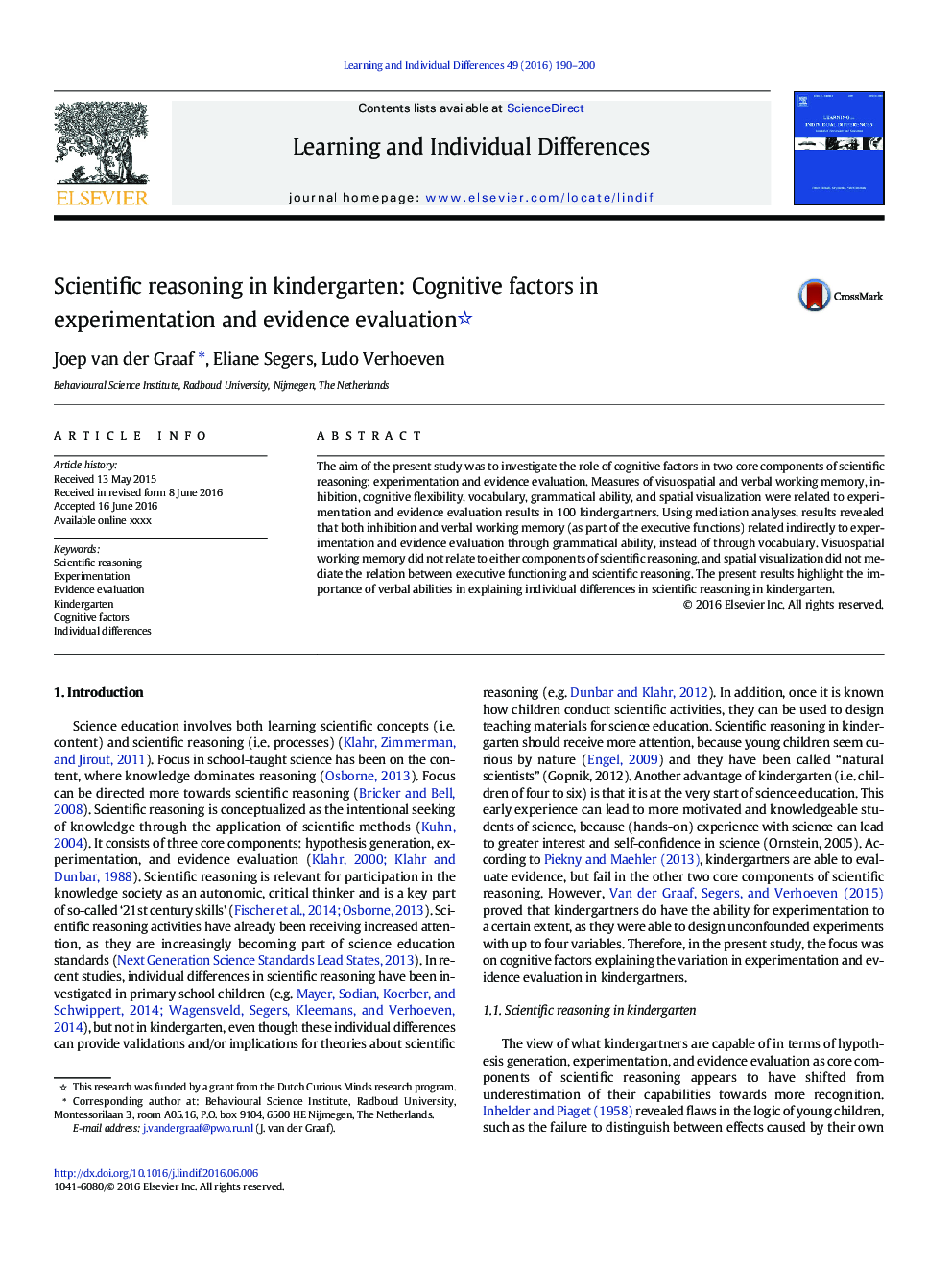| Article ID | Journal | Published Year | Pages | File Type |
|---|---|---|---|---|
| 6844742 | Learning and Individual Differences | 2016 | 11 Pages |
Abstract
The aim of the present study was to investigate the role of cognitive factors in two core components of scientific reasoning: experimentation and evidence evaluation. Measures of visuospatial and verbal working memory, inhibition, cognitive flexibility, vocabulary, grammatical ability, and spatial visualization were related to experimentation and evidence evaluation results in 100 kindergartners. Using mediation analyses, results revealed that both inhibition and verbal working memory (as part of the executive functions) related indirectly to experimentation and evidence evaluation through grammatical ability, instead of through vocabulary. Visuospatial working memory did not relate to either components of scientific reasoning, and spatial visualization did not mediate the relation between executive functioning and scientific reasoning. The present results highlight the importance of verbal abilities in explaining individual differences in scientific reasoning in kindergarten.
Keywords
Related Topics
Social Sciences and Humanities
Psychology
Developmental and Educational Psychology
Authors
Joep van der Graaf, Eliane Segers, Ludo Verhoeven,
